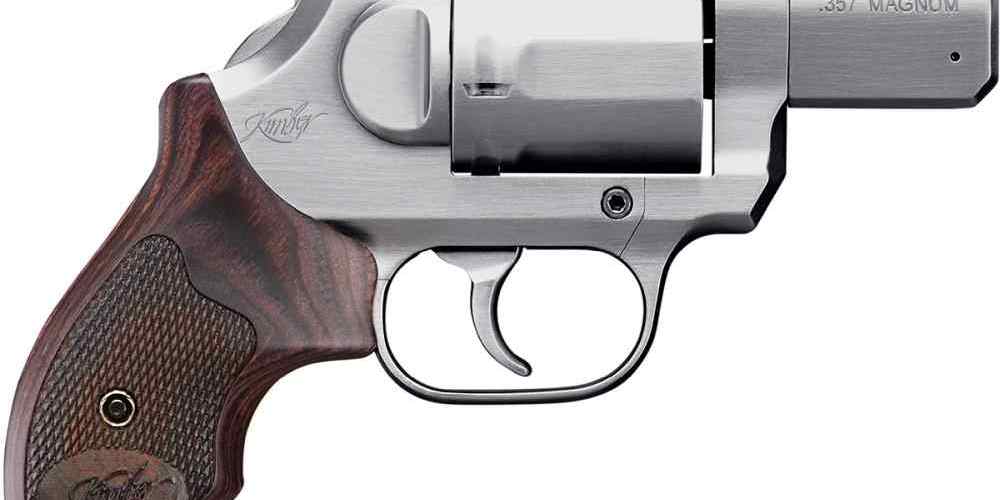“Preserving traditions, protecting lives.”
Changes in Hunting Regulations Due to Gun Control Measures
Gun control measures have been a hotly debated topic in recent years, with proponents arguing for stricter regulations to reduce gun violence, while opponents argue that such measures infringe on their Second Amendment rights. One area that has been significantly impacted by gun control measures is hunting and outdoor sports. Changes in hunting regulations due to gun control measures have had a profound effect on the way hunters and outdoor enthusiasts engage in their activities.
One of the most significant changes in hunting regulations due to gun control measures is the restriction on certain types of firearms and ammunition. For example, some states have banned the use of high-capacity magazines or certain types of semi-automatic rifles for hunting purposes. These restrictions are aimed at reducing the potential for mass shootings and other forms of gun violence, but they have also had unintended consequences for hunters who rely on these firearms for their sport.
In addition to restrictions on firearms and ammunition, gun control measures have also led to changes in the process of obtaining hunting licenses. Some states now require hunters to undergo background checks or complete safety training courses before they can obtain a hunting license. While these measures are intended to ensure that only responsible individuals have access to firearms, they have also created additional barriers for hunters who may not have the time or resources to complete these requirements.
Another impact of gun control measures on hunting and outdoor sports is the increased scrutiny of gun owners by law enforcement agencies. In some cases, hunters have been subject to increased surveillance or have had their firearms confiscated due to concerns about their mental health or criminal history. While these measures are intended to prevent gun violence, they have also created a climate of fear and mistrust among hunters and outdoor enthusiasts.
Despite these challenges, many hunters and outdoor sports enthusiasts have adapted to the changes brought about by gun control measures. Some have switched to alternative firearms or ammunition that comply with the new regulations, while others have embraced new technologies such as bow hunting or crossbow hunting. Additionally, some hunters have formed advocacy groups to push back against what they see as overly restrictive gun control measures that infringe on their rights as sportsmen.
In conclusion, changes in hunting regulations due to gun control measures have had a significant impact on the way hunters and outdoor sports enthusiasts engage in their activities. While these measures are intended to reduce gun violence and promote public safety, they have also created challenges for those who rely on firearms for their sport. Despite these challenges, many hunters have found ways to adapt and continue pursuing their passion for hunting and outdoor sports. As the debate over gun control continues, it is important to consider the impact of these measures on the hunting community and work towards finding a balance between public safety and the rights of sportsmen.
The Debate Over Assault Weapons in Hunting
The debate over assault weapons in hunting is a contentious issue that has divided the outdoor sports community. On one side, there are those who argue that assault weapons are necessary for hunting certain types of game, such as feral hogs or coyotes. They believe that these weapons provide a more efficient and humane way to control populations of these animals, which can be destructive to crops and livestock.
On the other side of the debate are those who believe that assault weapons have no place in hunting and that their use poses a danger to both wildlife and humans. They argue that these weapons are designed for military use and have no place in civilian hands. They also point to the increased risk of accidental shootings and the potential for these weapons to fall into the wrong hands and be used for nefarious purposes.

One of the main concerns surrounding the use of assault weapons in hunting is the potential for overkill. These weapons are capable of firing multiple rounds in rapid succession, which can result in excessive damage to the animal being hunted. This can lead to unnecessary suffering and a lack of respect for the animal and the sport of hunting as a whole.
Another issue is the impact that the use of assault weapons can have on public perception of hunting. Many people already have negative views of hunting, and the use of these weapons can further fuel these perceptions. This can lead to increased pressure to restrict or ban hunting altogether, which would have a devastating impact on the outdoor sports community.
Proponents of assault weapons in hunting argue that these weapons are necessary for certain types of hunting, such as predator control. They believe that these weapons provide a more effective way to manage populations of animals that can be destructive to crops and livestock. They also argue that the use of these weapons is a personal choice and that responsible hunters should be allowed to use them if they so choose.
Ultimately, the debate over assault weapons in hunting comes down to a balance between personal freedom and public safety. While some hunters may feel that these weapons are necessary for certain types of hunting, it is important to consider the potential risks and consequences of their use. It is also important to consider the impact that the use of these weapons can have on public perception of hunting and the outdoor sports community as a whole.
In conclusion, the debate over assault weapons in hunting is a complex and contentious issue that has no easy answers. It is important for hunters to consider the potential risks and consequences of using these weapons, as well as the impact that their use can have on public perception of hunting. Ultimately, the future of hunting and outdoor sports may depend on finding a balance between personal freedom and public safety.
How Gun Control Laws Affect Shooting Sports Competitions
Gun control laws have been a hotly debated topic in recent years, with proponents arguing for stricter regulations to reduce gun violence, while opponents argue that such laws infringe on their Second Amendment rights. One area where gun control laws have a significant impact is on shooting sports competitions, such as hunting and other outdoor sports.
One of the main ways in which gun control laws affect shooting sports competitions is through the types of firearms that are allowed to be used. In some states, certain types of firearms, such as assault rifles or high-capacity magazines, are banned or heavily restricted. This can have a significant impact on shooting sports competitions, as competitors may not be able to use their preferred firearms or may have to modify their equipment to comply with the law.
Additionally, background checks and waiting periods required by gun control laws can also impact shooting sports competitions. Competitors may have to undergo background checks before purchasing firearms or ammunition, which can delay their ability to participate in competitions. This can be particularly challenging for competitors who travel to different states to compete, as they may have to navigate different laws and regulations in each location.
Another way in which gun control laws affect shooting sports competitions is through the availability of shooting ranges. In some areas, shooting ranges are heavily regulated or restricted, making it difficult for competitors to practice and train for competitions. This can put competitors at a disadvantage compared to those in areas with more lenient gun control laws, where shooting ranges are more readily available.
Despite these challenges, many shooting sports organizations have adapted to the changing landscape of gun control laws. Some organizations have implemented their own safety measures and regulations to ensure that competitions are conducted in a safe and responsible manner. Additionally, some organizations have worked with lawmakers to advocate for regulations that balance the need for public safety with the rights of gun owners and shooting sports enthusiasts.
Overall, the impact of gun control laws on shooting sports competitions is complex and multifaceted. While some competitors may face challenges due to restrictions on firearms and ammunition, others may benefit from increased safety measures and regulations. As the debate over gun control laws continues, it is important for shooting sports organizations and competitors to stay informed and engaged in the process to ensure that their interests are represented.
In conclusion, gun control laws have a significant impact on shooting sports competitions, affecting everything from the types of firearms that can be used to the availability of shooting ranges. While these laws present challenges for competitors, they also provide an opportunity for organizations to implement safety measures and advocate for regulations that balance public safety with the rights of gun owners. By staying informed and engaged in the debate over gun control laws, shooting sports enthusiasts can help shape the future of their sport and ensure that it continues to thrive in a changing regulatory environment.
The Impact of Background Checks on Purchasing Firearms for Outdoor Activities
Gun control laws have been a hotly debated topic in the United States for many years. While the focus is often on how these laws affect crime rates and public safety, it is also important to consider how they impact activities such as hunting and outdoor sports. One key aspect of gun control that has a direct impact on these activities is the requirement for background checks when purchasing firearms.
Background checks are a crucial part of the gun purchasing process, as they help to ensure that firearms do not end up in the hands of individuals who should not have access to them. This includes individuals with a history of violent crime, domestic abuse, or mental illness. While some may argue that background checks are an unnecessary burden on law-abiding citizens, they are an important tool in keeping our communities safe.
For those who participate in hunting and outdoor sports, background checks are a necessary step in acquiring the firearms needed for these activities. While some may see this as an inconvenience, it is a small price to pay for the peace of mind that comes with knowing that those around you are not a threat to your safety. Additionally, background checks can help to prevent accidents and tragedies that can occur when firearms end up in the wrong hands.
One concern that some hunters and outdoor enthusiasts may have is that background checks could make it more difficult to purchase firearms for their activities. However, in reality, the vast majority of individuals who apply for background checks are approved in a timely manner. This means that law-abiding citizens can still easily obtain the firearms they need for hunting and outdoor sports, while those who pose a risk to public safety are prevented from doing so.
In addition to keeping firearms out of the wrong hands, background checks can also help to protect the reputation of hunters and outdoor sports enthusiasts. By ensuring that those who participate in these activities are responsible gun owners, background checks help to dispel the negative stereotypes that are often associated with gun ownership. This can help to promote a positive image of hunters and outdoor sports enthusiasts in the eyes of the public and lawmakers.
Overall, the impact of background checks on purchasing firearms for hunting and outdoor sports is a positive one. While they may add an extra step to the purchasing process, they are an important tool in keeping our communities safe and ensuring that firearms are used responsibly. By supporting background checks, hunters and outdoor sports enthusiasts can help to protect their own safety, as well as the reputation of their activities.
Addressing Safety Concerns in Hunting and Outdoor Sports with Gun Control Measures
Hunting and outdoor sports have long been popular pastimes for many individuals, providing a way to connect with nature and enjoy the great outdoors. However, with the rise in gun-related incidents and concerns about safety, the issue of gun control has become a hot topic of debate in recent years.
One of the main arguments in favor of gun control measures is the need to address safety concerns in hunting and outdoor sports. By implementing stricter regulations on the purchase and use of firearms, proponents argue that we can help prevent accidents and tragedies from occurring. For example, requiring background checks and mandatory safety training for hunters can help ensure that only responsible individuals are allowed to own and use firearms.
In addition to promoting safety, gun control measures can also help protect wildlife and preserve natural habitats. By limiting the number of firearms in circulation and regulating hunting practices, we can prevent overhunting and ensure the sustainability of our natural resources. This is especially important in the face of climate change and habitat destruction, which threaten the survival of many species.
Furthermore, gun control can help reduce the incidence of illegal poaching and wildlife trafficking. By cracking down on the illegal trade of firearms and enforcing strict penalties for those caught engaging in these activities, we can help protect endangered species and preserve biodiversity. This not only benefits the environment but also helps support the local communities that rely on wildlife for their livelihoods.
While some may argue that gun control measures infringe on their Second Amendment rights, it is important to remember that these regulations are intended to promote safety and protect the public interest. By balancing the rights of individuals with the needs of society as a whole, we can create a more sustainable and responsible approach to hunting and outdoor sports.
In conclusion, gun control measures play a crucial role in addressing safety concerns in hunting and outdoor sports. By implementing stricter regulations on the purchase and use of firearms, we can help prevent accidents, protect wildlife, and preserve natural habitats. While there may be some resistance to these measures, it is important to prioritize the safety and well-being of both humans and the environment. By working together to find common ground, we can ensure that hunting and outdoor sports remain enjoyable and sustainable activities for generations to come.




